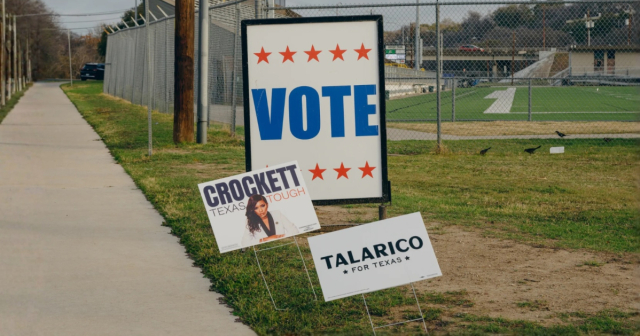In Texas, we have witnessed a full-scale assault on transgender people under the guise of “protecting sports.” State officials have created narratives that trans athletes are somehow destroying fair competition or posing a danger to others. But the numbers tell a different story—one that exposes these attacks for what they truly are: an effort to marginalize and dehumanize an already vulnerable community.
Consider this, according to NCAA President Charlie Baker, fewer than 10 transgender athletes currently compete in NCAA sports. That’s out of approximately 520,000 college athletes, as of 2022. That’s less than 0.0019%—a fraction of a fraction of a fraction. Yet, Texas politicians insist that this minuscule percentage threatens the integrity of college athletics and the safety of women.
This obsession with trans participation isn’t about fairness; it’s about exclusion. Texas officials aren’t just trying to regulate competition—they’re working to outright ban trans athletes, with some proposals pushing for segregated categories that would isolate trans athletes from everyone else. This isn’t about preserving women’s sports; it’s about making sure transgender people are kept out entirely.
Even more disturbing are the baseless accusations that trans people are inherently dangerous. Texas officials and their allies have repeatedly pushed the claim that trans people pose a threat in bathrooms, locker rooms and sports teams. But the reality is the opposite. A UCLA School of Law study found that transgender people are over four times more likely than cisgender people to be victims of violent crime. Yet instead of addressing this vulnerability, Texas lawmakers doubled down on fear-mongering, creating a world in which trans people are treated and seen as deviants and predators rather than the ones in need of protection.
Texas escalated this manufactured crisis by suing the NCAA, demanding that the governing body screen the sex of all student-athletes.
State officials even sought court orders to force the NCAA to either implement invasive physical screenings or stop using terms like “women,” “female,” or “girl” altogether when marketing women’s sports.
But now, as we face the aftermath of the most recent legislative session, we must also reckon with the broader implications of Texas’ new “sex definition” law, House Bill 229.
Though its full impact remains uncertain, this law lays the groundwork for even more extreme and invasive policies—ones that could require all athletes to undergo proof-of-gender procedures, even without any reason to question their identity. In practice, this could even erase trans people from official state records, stripping them of legal recognition and forcing them to live as the sex they were assigned at birth.
Let me be clear: this isn’t about sports. It’s about reinforcing a worldview that sees trans existence as a threat. These attacks rely on the same kind of fear and bigotry that have long been used to justify discrimination.
It’s impossible to ignore the echoes of history, like when segregationists such as Strom Thurmond warned that "there's not enough troops in the army to force the southern people to break down segregation and admit [Black people] into our theatres, into our swimming pools, into our homes, and into our churches." Today, that same rhetoric is being repackaged, with trans people as the new scapegoat.
This isn’t a debate about fairness or integrity. It’s a campaign of fear designed to keep transgender people from participating in public life. And just like previous generations fought back against segregation and discrimination, we must fight back against this. Texas lawmakers may be determined to make life harder for trans people and may even try to erase them. But it’s up to the rest of us to make sure they don’t succeed.
DONATE
Your donation supports our media and helps us keep it free of ads and paywalls.









